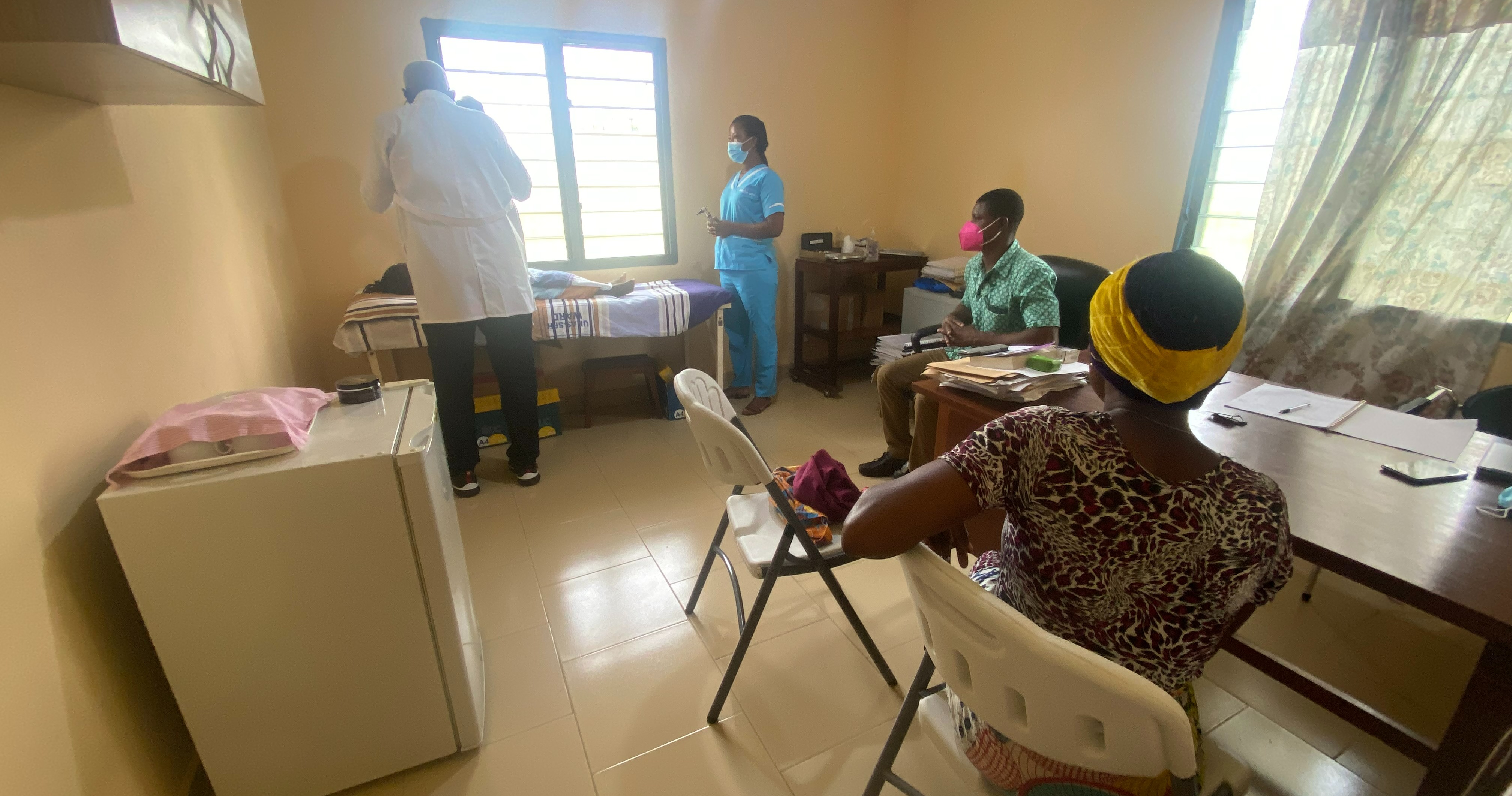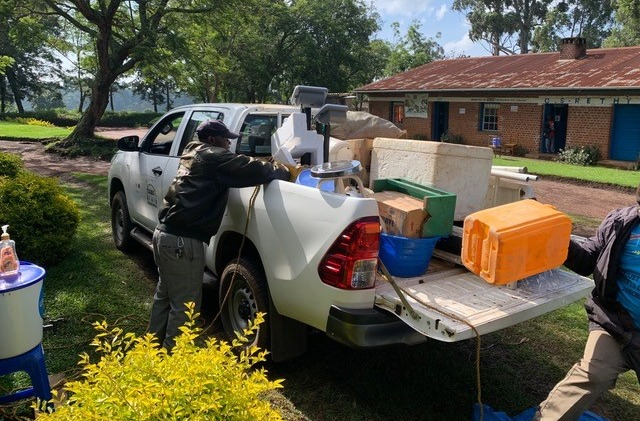Following the first regulatory approval of moxidectin, TDR has been supporting fundraising and providing technical and scientific advice to partners generating data for evaluation of moxidectin for inclusion in WHO guidelines and country policies.
In 2018, the United States Food and Drug Administration approved moxidectin for the treatment of onchocerciasis (also known as river blindness) of individuals aged 12 years and older. This was the result of two decades of collaboration between TDR, researchers in onchocerciasis endemic and other countries, WHO country offices and the not-for-profit biopharmaceutical company Medicines Development for Global Health (MDGH) to whom WHO licensed all moxidectin-related data at its disposal in 2014. TDR and MDGH were recognized for their collaboration by the Mitchell Humanitarian Award in 2020.
Three studies generating data to inform WHO and country decisions about inclusion of moxidectin in onchocerciasis elimination strategies are now ongoing.
A pharmacokinetic (PK) and safety study will identify moxidectin dose(s) for children 4-11 years of age which provide exposures (serum concentrations over time) comparable to those safe and effective in individuals 12 years and older and for which large scale paediatric safety data can be obtained. MDGH is funding and sponsoring this study.

Dr Nicholas Opoku and a study nurse are examining a child in the presence of an interpreter and the mother. Credit: UHAS RC/Edem Nelson/2022
The data from the two older age groups have been reviewed by the Data Safety Monitoring Board for recommendation on the dose to be evaluated in 4- to 7-year-old children.
Two studies are ongoing in the Democratic Republic of the Congo (DRC):
- A 12 500-participant double-blind study comparing the safety of moxidectin and ivermectin in individuals with any level of infection (including undetectable levels) to inform WHO and country decisions on whether moxidectin is suitable for a mass drug administration strategy.
- A 1000-participant double-blind study comparing three annual or five biannual treatments with moxidectin or ivermectin to inform WHO and countries on whether, when and where to utilize moxidectin- or ivermectin-based treatment strategies. The parasitological data will be used by our partners to improve not only ONCHOSIM and EPIONCHO modelling of the time to elimination of O. volvulus transmission with moxidectin-based strategies but will also fill data gaps for informing ONCHOSIM and EPIONCHO modelling of ivermectin-based strategies.

A study vehicle is being loaded at CRMT in Rethy with some of the material needed for examining study participants in their community. Credit: CRMT Ituri/Tony Ukety/2022

The DRC team is utilizing the infrastructure of the Centre de Recherche en Maladies Tropicales (CRMT Ituri), created by TDR for the moxidectin phase 3 study, augmented for the current community-based studies. The four members of the leadership team are from Ituri and build on their experience during the phase 3 study and other studies they conducted in Ituri. This allows them and their 49 colleagues from most ethic groups in Ituri to address the challenges typical for studies in rural Africa and to persevere despite a challenge encountered less commonly: civil conflict. As Dr Ukety, the principal investigator, told a journalist of an international news outlet which reported on the studies: "The militia's incursions have affected our activities a bit. But we are still here and we are going to see things through. " (French version is available here.)
The investment of time and effort by study participants and staff and of funding will be maximized through use of the microfilariae for research to identify O. volvulus transmission zone markers and genetic markers of suboptimal response to ivermectin (funded through TDR and an NIH grant to one TDR funded investigator) and, if applicable, suboptimal response to moxidectin. Remaining parasites and, provided participants consented, left-over serum and urine are sent to the FR3 Filariasis Research Reagent Resource Center for research for diagnostics, drugs and vaccines for onchocerciasis and other Neglected Tropical Diseases. USAID is providing funding for this effort through the COR-NTD grant.
TDR is now also collaborating with MDGH and investigators in Cameroon, Germany, Ghana, Luxembourg, and Great Britain on the development of a paediatric formulation of moxidectin.
Funding for the studies in DRC and paediatric formulation development is provided by the European and Developing Countries Clinical Trials Partnership (EDCTP), MDGH and the Luxembourg National Research Fund.
Some onchocerciasis endemic countries and the NGDO supporting their onchocerciasis elimination programmes are planning moxidectin pilot implementation projects. Such projects will demonstrate the effectiveness and safety of moxidectin in programmatic settings, a need identified in the WHO road map for NTDs 2021-2030 in view of moxidectin’s potential to replace the need for semiannual ivermectin treatment.
With input from other members of the Executive Committee for the EDCTP grant for the studies in DRC, MDGH and TDR are working towards raising additional funding to increase the enrolment capacity for the studies. Additional funding is critical to reduce the time to availability of the data to inform WHO and country decisions and thus, if applicable, allow moxidectin to more quickly contribute to reaching or exceeding the targets in the WHO roadmap.
For more information on these studies, please contact Dr Annette C. Kuesel.

